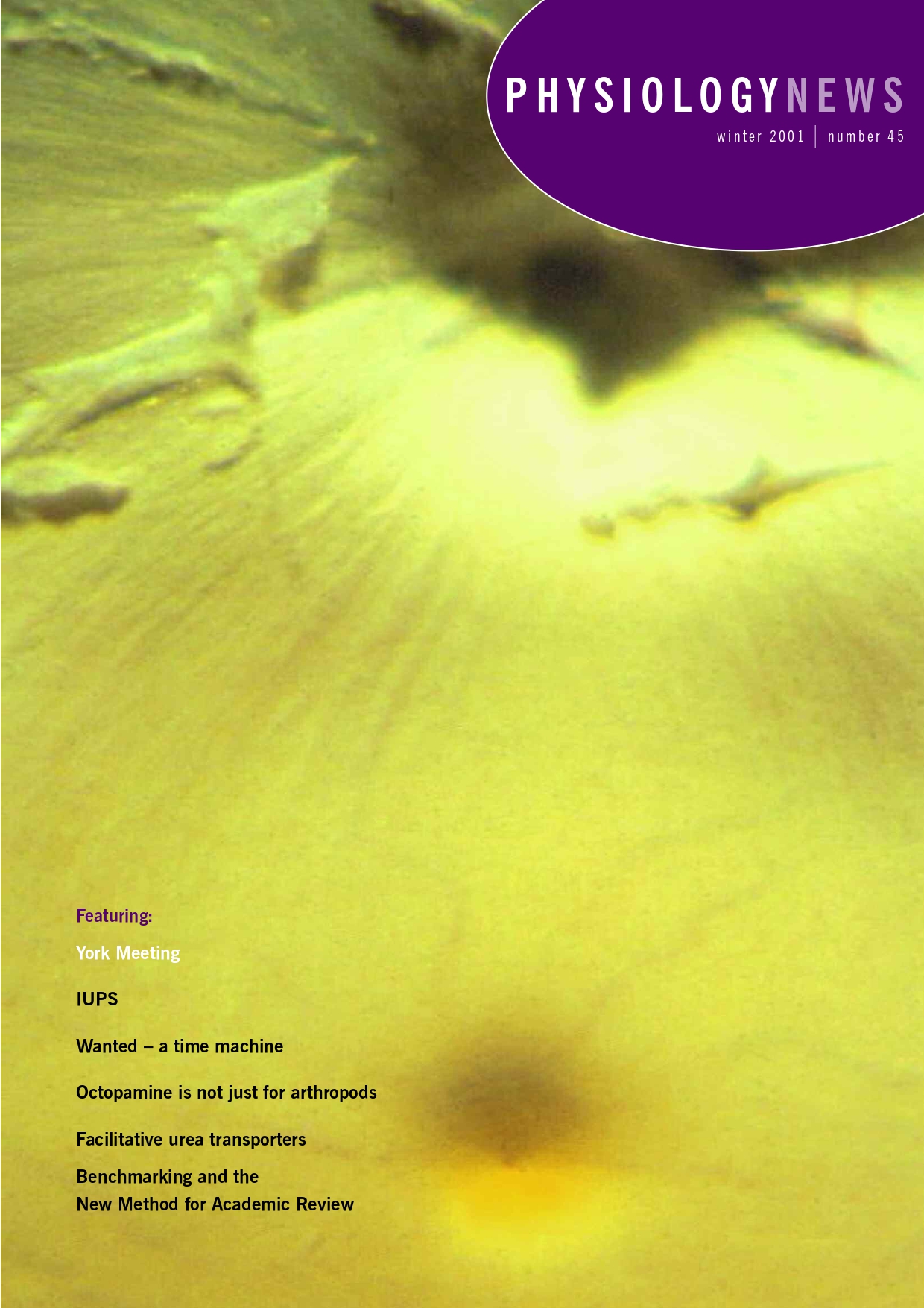
Physiology News Magazine
The Clinical Academic – The Clinical Scientist
Features
The Clinical Academic – The Clinical Scientist
Features
Dafydd Walters
Department of Child Health, St George’s Hospital Medical School
https://doi.org/10.36866/pn.45.16
Those of you who think that life is hard being a scientist nowadays are unlikely to give much thought to clinicians who have academic aspirations (overpaid, in the way, uneducated and always in a hurry). Nevertheless, there has been a minor crisis in academic medicine in the past few years. A major reorganisation of postgraduate training for clinicians, called ‘Calmanisation’ (after the then Chief Medical Officer of Health), has been introduced. Effectively, this gives a tight structure for the training in all the medical specialities for the 5-6 years leading up to consultant grade (i.e. the specialist registrar). It has had the benefit of improving the standards of training for many clinicians but has had the unfortunate effect of inflexibility. Thus many clinicians who might have wanted to “dip their toe” into scientific research are often discouraged from doing so. Certainly if they spend more than a year out of their training scheme the perception is that they have great difficulty getting back in. This has resulted in poor recruitment into Academic Medicine in its broadest sense, and there is great concern that it would lead to an erosion of the research base in clinical medicine and to a lack of scientific leadership in the next generation. The problem has been recognised by the powers that be and following several reports, most importantly the Saville Report, a proposal has come to fruition whereby nationally there will exist 50 clinician scientist posts. Funding for the posts will come jointly from the MRC, the Wellcome Trust and the Department of Health. They will be held for 10 years by each individual and the idea is that it will give them some sort of security whereby they will obtain a PhD interdigitated with the training in their particular clinical discipline. After 5 or 6 years in training these individuals would be at senior lecturer level and would continue in their research area for a further 4 to 5 years in their institutions.
Fifty places is not a large number and the competition for these posts is likely to be fierce. Physiology is the most important subject which underlies the practice of Medicine (albeit that not many clinicians recognise it!) so there is an opportunity here for Physiology Departments to develop research projects and collaboration with this old species under a new guise – the academic clinician or clinical scientist.
